Trace Elements
All information about "Trace Elements" and the related magazine articles can be found here.
Our articles are written clearly and link to scientific studies where relevant. This is how we meet our own standards: we regularly deliver new, high-quality content for you—free of charge, no sign-up required, with the highest possible benefit to you.

Myo-inositol - how does it affect us?
Hormonal imbalance can have a major impact on many processes. What exactly does it mean when our own production decreases and how can I support my health in this regard?

Calcium or calcium - the important thing is to take it!
Find out what this important mineral is involved in in the body and which is the better form of calcium here!
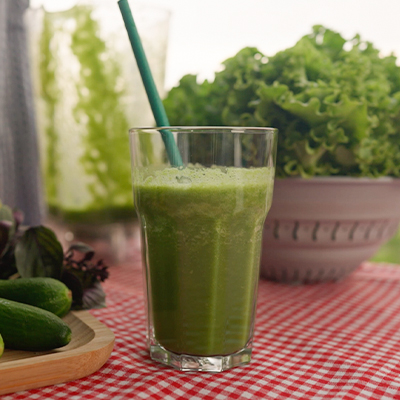
How a detox works
The human body works around the clock to eliminate harmful substances and toxins. But when there are too many toxins in the system, it needs help.

Alkaline diet
The pH of our organs plays an important role in our health. But how does our diet affect our body's acid-base balance?

How can I tell if I have a vitamin deficiency?
Tired, exhausted, aching limbs? A vitamin deficiency can take many forms, but is usually easy to treat. Find out what to look out for.
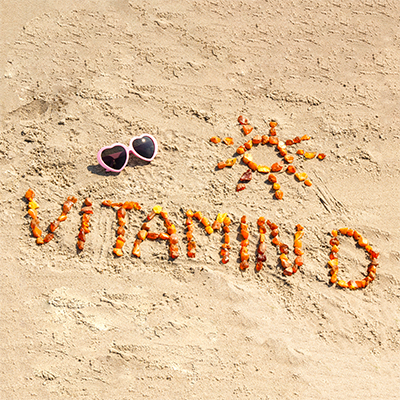
Often in short supply in winter - Vitamin D
Vitamin D is a real all-rounder when it comes to health: it ensures healthy bones and is involved in many processes in the human body.
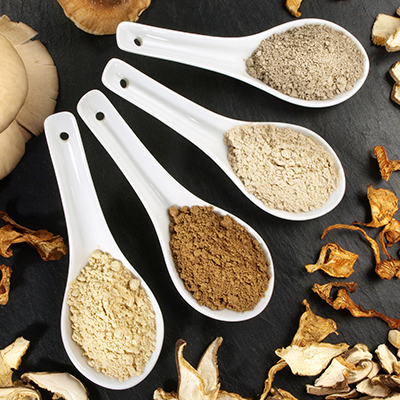
Still unknown to many - medicinal mushrooms
Many people in Europe are still unfamiliar with the use of so-called medicinal mushrooms, but these mushrooms are an integral part of many traditional diets. Find out what they are called and what powers they have.

When the immune system needs a boost
Our immune system is usually good at fending off invaders. But how can we strengthen it so that it continues to work well under high levels of stress?

Get through the autumn and winter safely!
Colds are hard on the mind and body. Read here to find out how you can protect yourself against colds and give your body extra support.
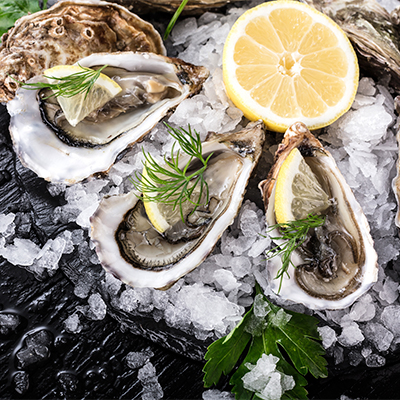
Zinc, an essential trace element
Zinc is involved in many processes in the human body. Read here to find out why it is so important for us and what vegetarians/vegans should look out for.

Vitamins for hair loss
Biotin, vitamin D, zinc and selenium: When certain nutrients are lacking, hair suffers. Hair health can be supported by the right diet

Alternative treatments for bladder infections
Urinary tract infections are common. In most cases, the infection can be cured easily, and some home remedies can help the healing process.

The effects of the yam root
Yam is a staple food around the world. The yam is a staple food in many parts of the world, similar to the potato.

How curcumin works
Turmeric owes its bright yellow colour to the plant compound curcumin. But curcumin is much more than that.

Women in competitive sport
The effect of oestrogen and progesterone on training success has long been underestimated. The definable phases of muscle building, increased risk of injury and muscle recovery can now be used to create a successful training plan.
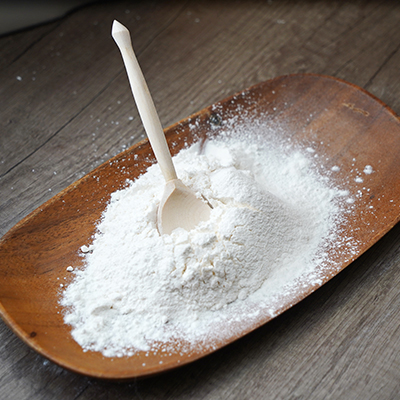
How galactose works
This simple sugar works differently to glucose and therefore has special properties that make it particularly interesting for diabetics. Find out more now

To do this, the body needs the amino acid L-tyrosine.
L-tyrosine is involved in many processes in the body, including the production of the hormones dopamine and adrenaline.

How to keep your gut flora healthy
What makes a healthy gut? And how can gut bacteria and the right diet help you stay healthy? Here are the answers to the most important questions about a healthy gut.

Vitamins for beautiful skin
Vitamins play an important role in our health - and our appearance. With the right nutrients, you can make your skin glow.
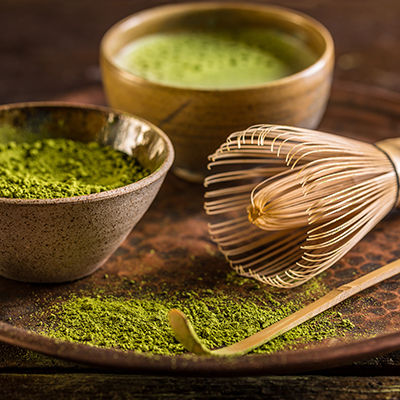
Green tea is so healthy
Green tea is considered healthy and is also said to help with weight loss. So it's not surprising that there are now many dietary supplements containing green tea extract. What is behind these supposed effects?

What is Astragalus extract?
Astragalus root extract has been used in traditional Chinese medicine for thousands of years.

What makes collagen special
Collagen is best known for its role in the connective tissue of the skin. Skincare products or supplements containing collagen are often advertised as having an "anti-ageing" effect. But the protein can do more.

What is L-Arginine?
L-Arginine is a term that is often used in connection with weight training supplements. Read on to find out what it is and how it can benefit athletes in particular.
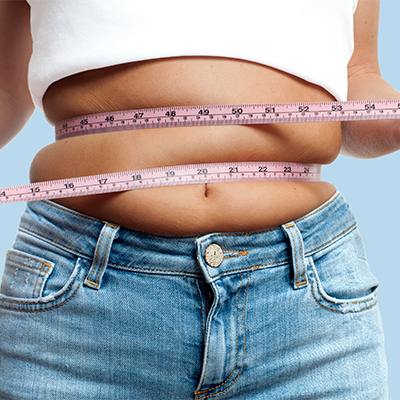
Can vitamin B12 help you lose weight?
Vitamin B12 is involved in many metabolic processes in the human body. Many people find that weight gain and B12 deficiency often occur together. Why is this the case?
Trace elements: small amounts, big impact on health
Sometimes it's the little things in life that make the biggest difference – and that also applies to health. Trace elements are perfect examples of these small but crucial components. Although the body only needs them in the smallest of quantities, they are essential for our well-being. These tiny minerals ensure that the body functions well all round, whether it's coping with a stressful day at work, achieving personal fitness goals or simply getting a daily boost of energy. We have all the important information!
What are trace elements?
Most people have heard of them, but what exactly are these trace elements? Trace elements are essential minerals, i.e. chemical elements that the human body needs only in tiny amounts – often only a few milligrams or even micrograms per day – but which play a crucial role in health every day [2]. Despite their low concentration in the body, they are involved in quite a few vital functions.
Important: The body cannot produce them itself, which is why they have to be obtained from food.
They support the work of numerous enzymes in important chemical reactions, promote hormone production, contribute to cell regeneration and are also essential for the formation of bones and tissue [4]. So if that's not important for our body! Although essential trace elements are only present in trace amounts, they have an enormous effect on the proper functioning of the body and are indispensable for our well-being.
What is the difference between trace elements and bulk elements?
Bulk elements are minerals such as calcium or magnesium. The main difference between trace elements and bulk elements lies not only in the quantity required, but also in their role and distribution in the body:
Bulk minerals are needed in larger quantities (milligrams to grams) and are often stored in bones, teeth and body fluids. They play a central role in maintaining structure and function, such as the stability of bones or the regulation of heart rhythm [3].
In contrast, trace elements are only needed in very small amounts (micrograms to milligrams) and are often involved in enzymatic processes or as cofactors in various biochemical reactions. They are often present in the body in very small concentrations, but their functions are equally crucial. Trace elements support specific biological processes such as oxygen transport or cell regeneration [3].
What are the most important trace elements and what are they for?
In small quantities, but with an enormous effect, trace elements are essential for the proper functioning of the body. The following five essential trace elements (there are 14 in total) are indispensable for the human body because they fulfill important tasks:
Iron
Iron is essential for the transport of oxygen in the blood. It is a major constituent of hemoglobin, the protein in red blood cells that carries oxygen from the lungs to the cells. Iron deficiency can lead to iron-deficiency anemia, a condition characterized by fatigue, weakness, and pallor [6,14].
Zinc
Zinc plays a key role in the immune system and is involved in over 300 enzymatic reactions. It aids wound healing, which is why it is used in many wound creams. It also promotes growth and cell division and helps the body to defend itself against infections. In addition, zinc is important for the metabolism of carbohydrates, proteins and fats [7].
Selenium
Selenium is a powerful antioxidant that protects cells from damage by free radicals – unstable molecules that can attack other cell structures due to their reactivity and are formed by environmental pollution, UV radiation or stress. Selenium is also important for thyroid function and helps regulate the metabolism. In addition, selenium-containing enzymes support the immune system and have anti-inflammatory properties [8]. A real all-rounder!
Copper
Copper is essential for the formation of connective tissue, the production of melanin and energy metabolism. It also plays an important role in the functioning of the nervous system and supports the immune system. A copper deficiency can have long-term consequences and lead to anemia, bone abnormalities and neurological problems [9].
Iodine
Iodine is necessary for the production of thyroid hormones, which regulate metabolism. These hormones influence many physiological processes, including growth, energy production and protein synthesis. An iodine deficiency can lead to hypothyroidism, which can manifest itself in fatigue, weight gain and sensitivity to cold. Adequate iodine intake is particularly important in nutrition during pregnancy to ensure the healthy development of the fetus and avoid complications [13].
Other essential trace elements include manganese, chromium, molybdenum, fluoride, cobalt, nickel, silicon, vanadium and tin.
Minerals: What is the recommended daily dose?
The daily requirement of trace elements varies depending on age, gender and state of health. Here are the current recommendations of the DGE [1]:
- Iron: adults: 10-15 mg, pregnant women: 30 mg, breastfeeding women: 20 mg
- Zinc: adults: 7-10 mg, pregnant women: 7-10 mg (depending on the phytate content of the diet), breastfeeding women: 11 mg
- Selenium: adults: 60-70 µg, pregnant women: 60-75 µg
- Iodine: adults: 200 µg, pregnant women: 230 µg, breastfeeding women: 260 µg
- Copper: adults: 1-1.5 mg
- Manganese: adults: 2-5 mg
These amounts serve as a general guideline. Individual needs may vary depending on your diet and state of health.
Which foods are rich in important trace elements?
The following list shows which foods are rich in important trace elements and how you can cover your daily needs in a natural way.
- Red meat, offal such as liver (iron, selenium, copper, zinc)
- Fish, seafood, oysters (iron, zinc, iodine, selenium)
- Seaweed (iodine, iron, zinc)
- Pulses (iron, zinc, copper)
- Wholegrain products (iron, zinc, selenium, copper)
- Green leafy vegetables (spinach) (iron)
- nuts, seeds (iron, zinc, copper, manganese)
- Brazil nuts (selenium, in moderation)
- iodized salt (iodine)
- milk products (iodine, zinc)
- eggs (selenium, zinc, iron)
A balanced diet with a variety of plant-based and animal-based foods can usually cover the need for all essential trace elements. Whole grain products, nuts, seeds, legumes and green vegetables are particularly valuable sources of various trace elements. Foods rich in vitamin C, such as bell peppers, citrus fruits or berries, can also help the body absorb iron from plant-based foods. Whether you are vegan, vegetarian or eat meat, there are many ways to supply the body with the nutrients it needs.
What influence do trace elements have on the immune system?
Important trace elements such as zinc and selenium play a key role in supporting the immune system. They promote the production of white blood cells and help the body fight off infections [10]. They also have an antioxidant effect and protect cells from oxidative stress caused by free radicals.
Studies show that an adequate intake of trace elements can reduce the risk of chronic diseases. For example, selenium deficiency is associated with an increased risk of cardiovascular disease [12]. Research also suggests that zinc can shorten the duration and severity of colds [7].
Vitamins: the power partners of trace elements
Vitamins and trace elements are real team players when it comes to health. Here are the most important partnerships:
- Vitamin A needs zinc, iron and other substances for transportation and to develop its active form [5]
- Vitamin B1 works closely with magnesium to keep the carbohydrate metabolism going
- Vitamin B2 supports iron absorption together with zinc
- Vitamin B6 needs magnesium for reinforcement
- Vitamin B12 uses folic acid and cobalt to get involved in blood formation [3]
- Vitamin C ensures that iron from plant sources is better absorbed and supports zinc in strengthening the immune system [3]
- Vitamin D is a real bone friend and, in combination with calcium, ensures strong bones. Magnesium helps convert vitamin D into its active form [3]
- Vitamin E and selenium are a dynamic duo that acts as an antioxidant to protect cells from damage [3]
And don't forget: Vitamin K works together with calcium to keep bones strong and is supported by magnesium to promote bone health [3]. But what to do in case of vitamin deficiency? Here you will find valuable information!
Dietary supplements: when are they useful?
Dietary supplements can be useful as an addition to a healthy diet if the diet alone does not cover the need for trace elements, e.g. in certain diets, vegetarian or vegan diets or in special phases of life such as pregnancy and breastfeeding.
During pregnancy, an adequate intake of iodine, iron and folic acid is essential [13]. Folic acid should be taken in the form of capsules to support cell division and fetal growth and to reduce the risk of neural tube defects in the unborn child [13].
Important: Supplementation should always be done in consultation with a doctor to avoid possible risks from overdosing.
What are the symptoms of a deficiency?
A deficiency of trace elements can manifest itself in a variety of ways. Typical signs of iron deficiency are fatigue, pale skin and concentration problems. An iodine deficiency can lead to an enlarged thyroid gland (goiter), while zinc deficiency is often characterized by a weakened immune system and delayed wound healing. Find out more about the signs of zinc deficiency here!
Risk groups
Certain groups of people are at increased risk of a trace element deficiency. These include pregnant and breastfeeding women, the elderly, and people with chronic illnesses or special diets. Iron is a particular issue here, because iron deficiency is considered the most common deficiency disease worldwide [11]. Vegetarians and vegans should pay particular attention to their iron and zinc intake, as plant-based foods contain less bioavailable iron than animal-based foods..
Preventive measures
A balanced diet is the best way to prevent a deficiency of trace elements. The German Nutrition Society (DGE) recommends covering your daily nutrient intake with a varied diet that is rich in natural sources of trace elements [1]. For at-risk groups, targeted supplementation with food supplements can be useful, but this should be done in consultation with a doctor. Regular blood tests can help to detect a deficiency at an early stage and to take targeted action against it.
Sources
[1] https://www.dge.de/wissenschaft/referenzwerte/
[2] https://flexikon.doccheck.com/de/Spurenelement
[3] https://www.oege.at/wissenschaft/nahrungsinhaltstoffe-vitamine-mineralstoffe/
[4] https://www.who.int/health-topics/micronutrients
[5] https://www.ncbi.nlm.nih.gov/books/NBK234920/
[6] https://www.who.int/health-topics/anaemia
[7] https://ods.od.nih.gov/factsheets/Zinc-HealthProfessional/
[8] https://ods.od.nih.gov/factsheets/Selenium-HealthProfessional/
[9] https://ods.od.nih.gov/factsheets/Copper-HealthProfessional/
[10] https://www.ncbi.nlm.nih.gov/pmc/articles/PMC7019735/
[11] https://www.kbv.de/media/sp/KBV_LaborDiagnostik_Eisenmangel.pdf
[12] https://www.cochranelibrary.com/cdsr/doi/10.1002/14651858.CD009671.pub2/full/de
[13] https://mobil.bfr.bund.de/cm/350/jod-folat-folsaeure-und-schwangerschaft.pdf
